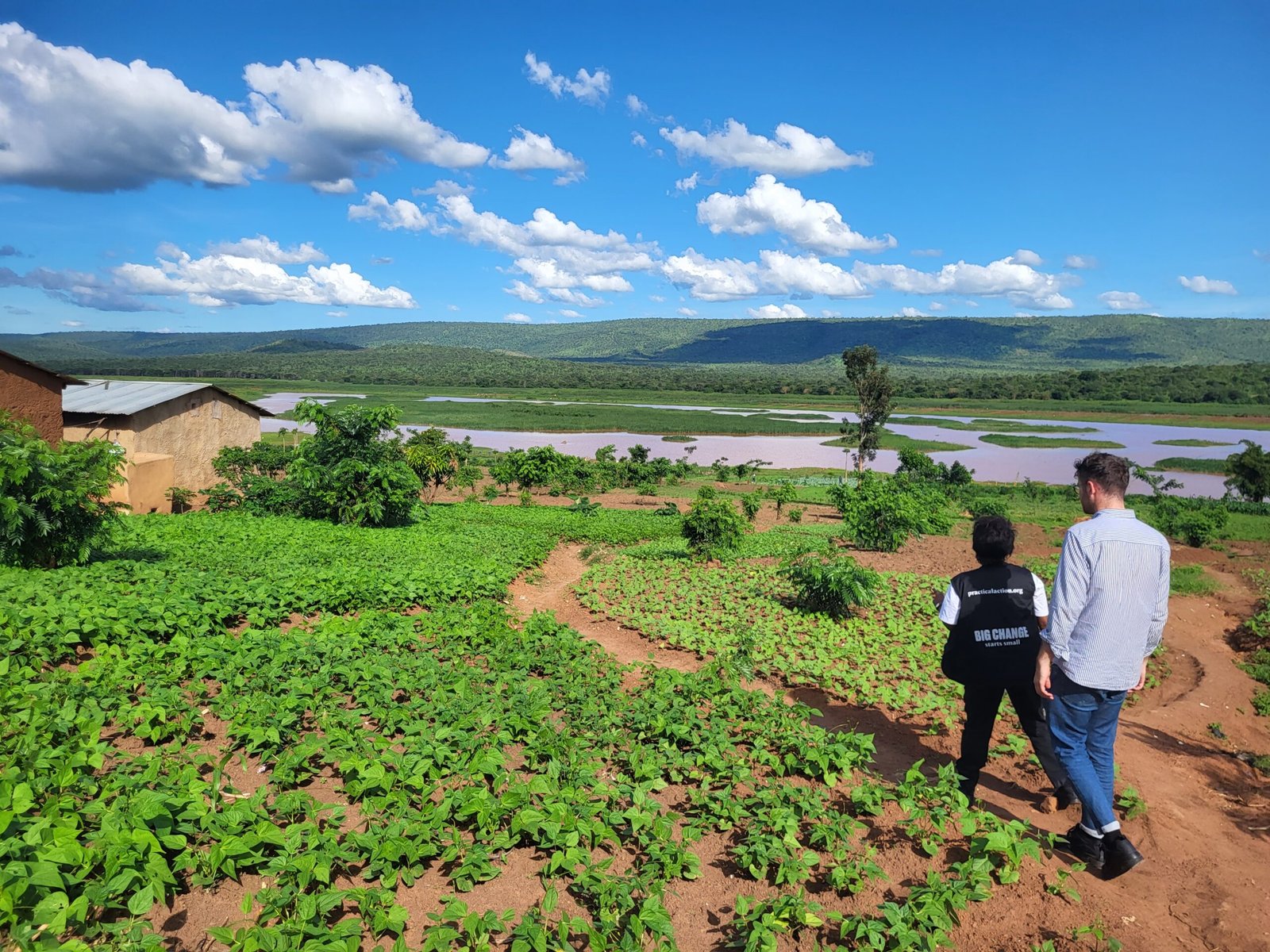Access to clean and sustainable energy is not just a technical challenge; it’s a fundamental aspect of improving lives.
In communities where resources are scarce, energy solutions can make the difference between survival and progress. At the Mahama Refugee Camp in Rwanda, the SUNNY project has taken its first major step toward this goal, working alongside partners PA, SOLHYD, and SOLEK to deliver innovative clean energy solutions.
Located in Rwanda’s Eastern Province, the Mahama Refugee Camp has been home to over 58,000 displaced individuals from Burundi and the Democratic Republic of Congo (DR Congo) since its establishment in 2015. While some progress has been made in introducing renewable energy sources, access to sustainable energy remains limited, impacting health, education, safety, and economic development for both refugees and the surrounding host communities.
Through the SUNNY project, we aim to test and implement pioneering solutions that will address these challenges, focusing on two key innovations: hydrogen-powered cooking systems and solar home systems.
The Energy Context at Mahama Refugee Camp
The Mahama Refugee Camp spans 175 hectares and operates under significant energy constraints. Although efforts have been underway since 2022 to connect the camp to the national electric grid, the current reliance on firewood, diesel generators, and LPG (liquefied petroleum gas) poses serious challenges:
- Environmental Impact: Firewood contributes to deforestation, and diesel generators emit harmful carbon.
- Financial Burden: Diesel and LPG costs strain humanitarian resources.
- Health and Safety Risks: Indoor air pollution and fire hazards harm community well-being.
Existing renewable efforts, such as the Nasho Solar Power Plant and solar panels at Mahama’s health center, have been impactful but need scaling to meet growing demands.
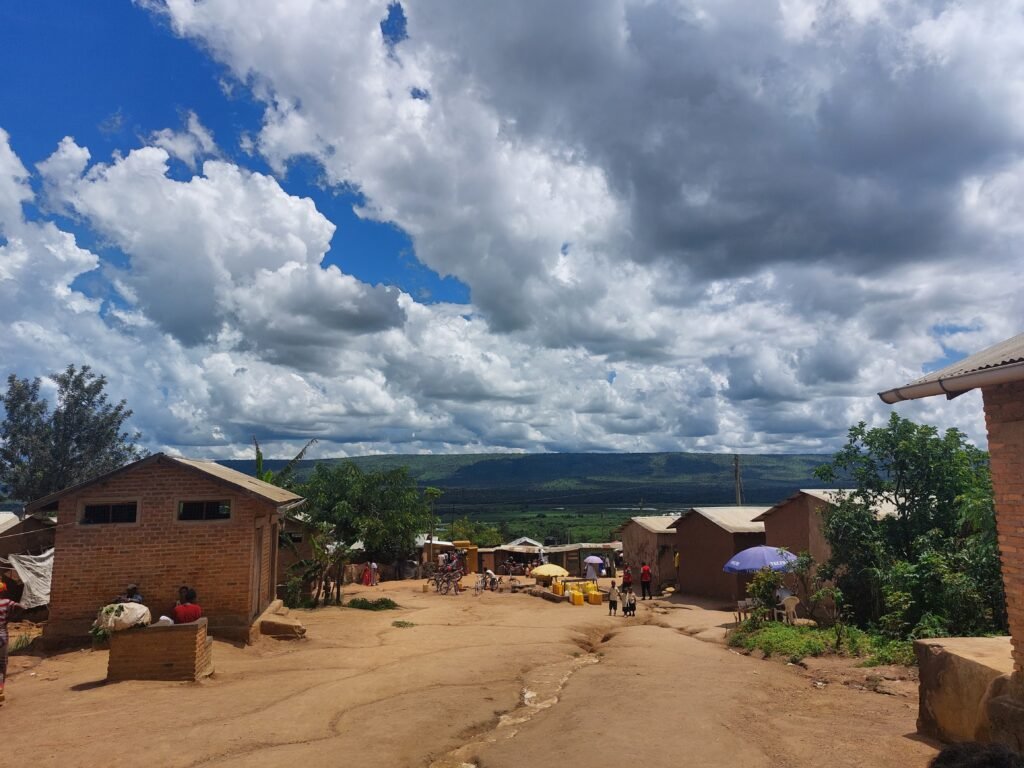
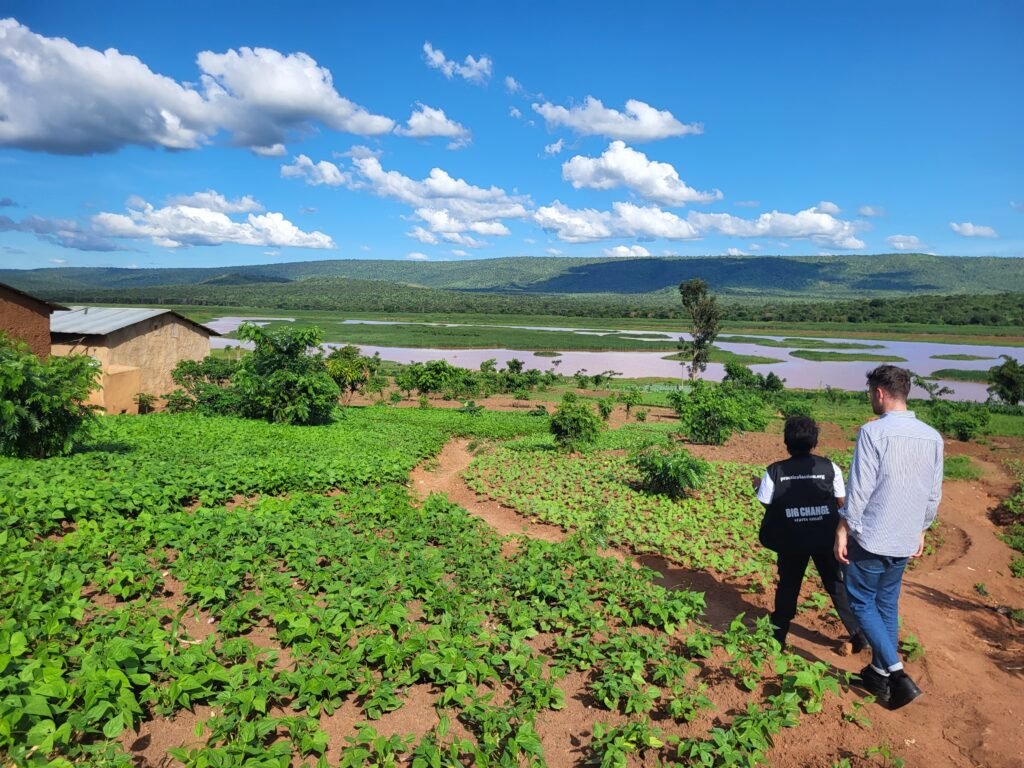
SUNNY Project: Objectives and Vision
SUNNY aims to demonstrate clean energy solutions while assessing their environmental, social, and economic impact. Our core goals are to:
- Reduce Carbon Footprint by shifting from firewood and diesel.
- Enhance Safety with cleaner, safer cooking and energy options.
- Empower Communities by boosting economic opportunities and gender equality.
- Promote Climate Resilience through sustainable energy models for displaced populations worldwide.
To achieve these goals, SUNNY has introduced two key solutions at its first demonstration site: hydrogen-powered cookstoves and solar home systems.
1. Hydrogen cooking solutions
Cooking remains a critical challenge for many refugees. Traditional methods, such as using firewood and charcoal, are unsustainable and pose severe risks to health and the environment. The SUNNY project is introducing hydrogen-powered cooking solutions that offer a cleaner, safer alternative.
Key Features Being Tested:
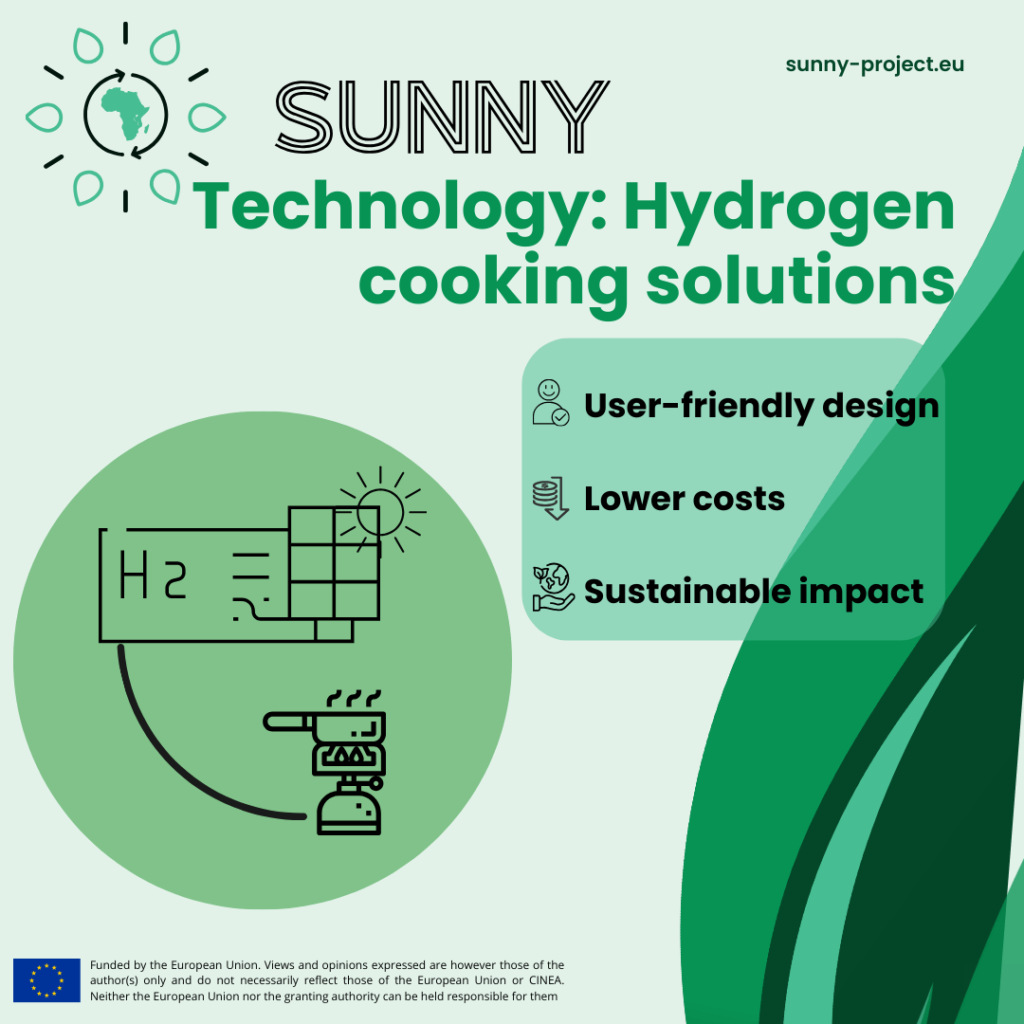
Hydrogen Generation: Monitored through solar hydrogen panels.
Storage Innovations: Hydrogen stored in truck tire inner tubes; evaluated for pressure, leaks, and portability.
Performance & Safety: A 100-hour test ensures efficiency, safety sensors detect failures, and system reliability is validated.
These systems offer a practical, safe alternative to firewood and LPG, improving household health and safety and reducing carbon emissions.
2. Solar Home Systems
Solar energy has already begun to make a difference at Mahama, but access to solar-powered systems for individual households remains limited. As part of the SUNNY project, solar home systems will be installed to test their performance, gather user feedback, and determine their scalability.
How It Works:
- Free installations for selected households.
- User feedback collected via ANGAHA CRM for performance monitoring and issue resolution.
- Community engagement ensures solutions align with household needs.
This process ensures solar systems are effective, user-friendly, and scalable for broader implementation.
This approach ensures that the systems are user-friendly, effective, and tailored to the community’s specific energy requirements.
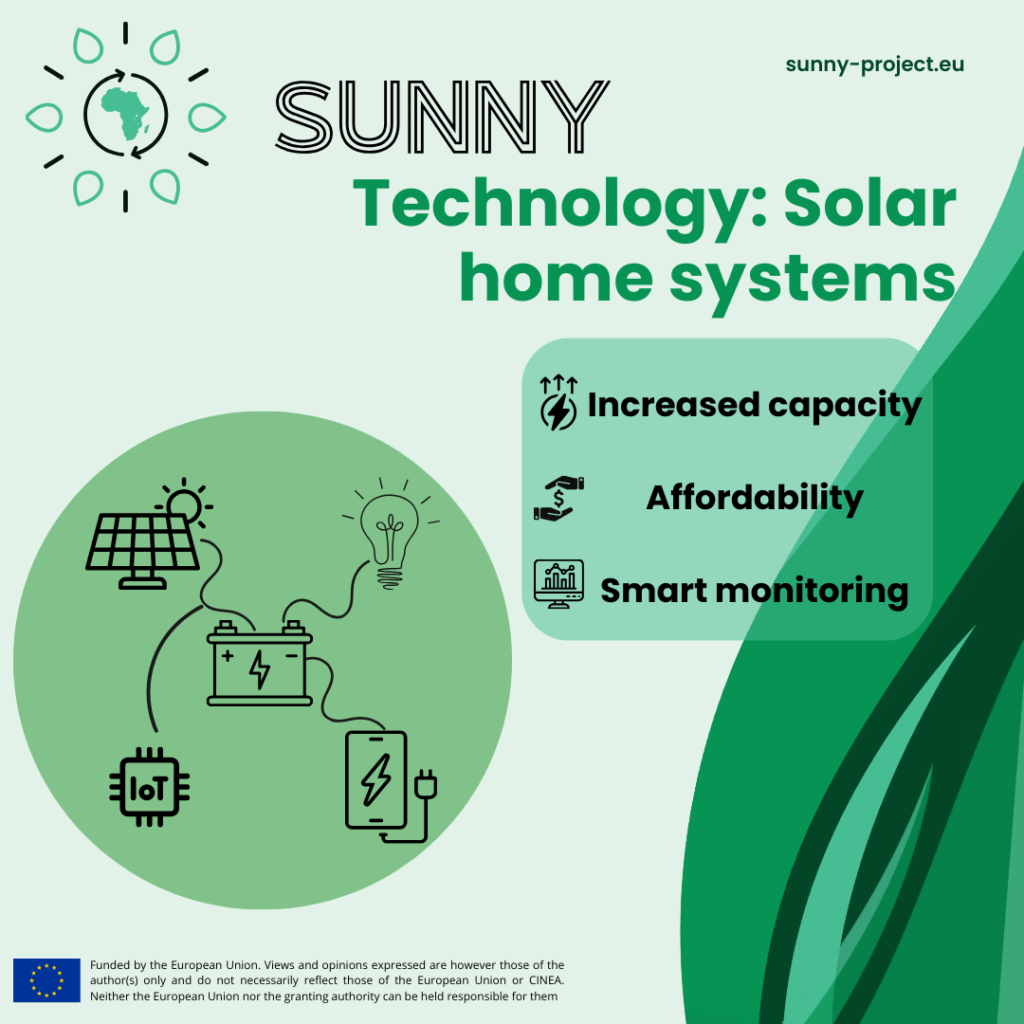
Why this matters: the broader impact
The introduction of hydrogen cooking solutions and solar home systems at Mahama Refugee Camp has far-reaching implications for refugees, host communities, and humanitarian actors alike:
- Environmental benefits: Reduces deforestation caused by firewood collection and carbon emissions.
- Economic opportunities: Supports small businesses, creating jobs and lowering energy costs. SUNNY’s solutions will also reduce the financial burden of purchasing LPG and diesel.
- Health & Safety Improvements: Minimizes smoke exposure, fire hazards, and respiratory illnesses.
- Community Integration: Benefits both refugees and host populations, fostering shared progress and social cohesion.
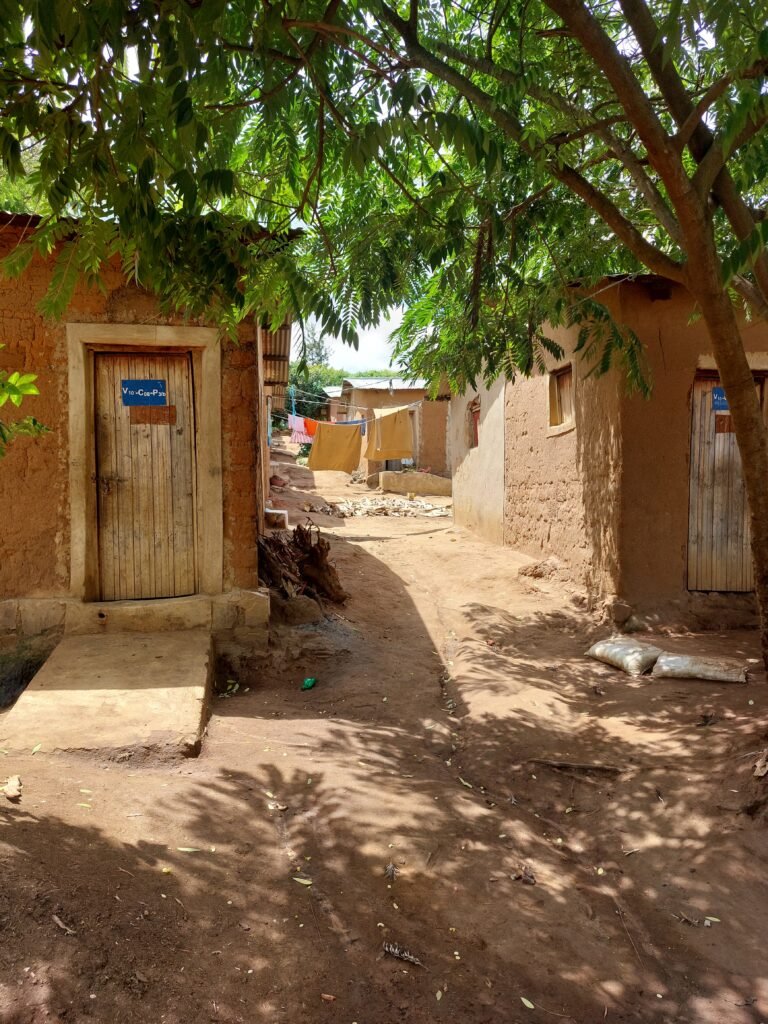

Looking ahead: a model for global impact
Mahama is just the beginning. The SUNNY project aims to create a scalable model for addressing energy challenges in refugee camps worldwide. Insights gained here will inform future clean energy initiatives, proving that sustainable solutions can empower communities everywhere.
At SUNNY, we believe access to energy is a human right. Through innovation and collaboration, we can build a brighter, more sustainable future for all.

